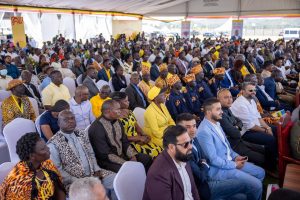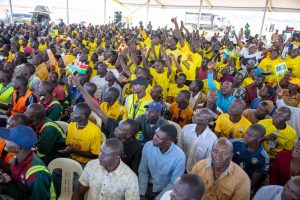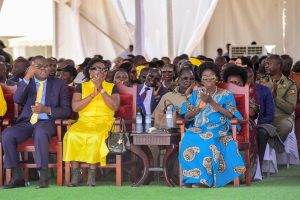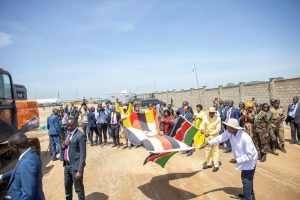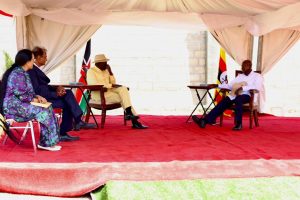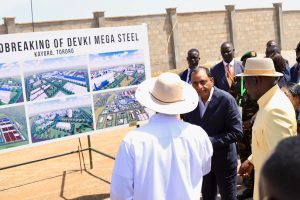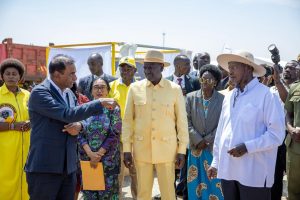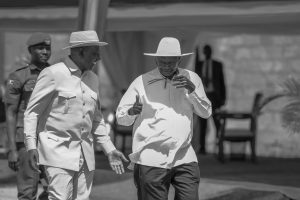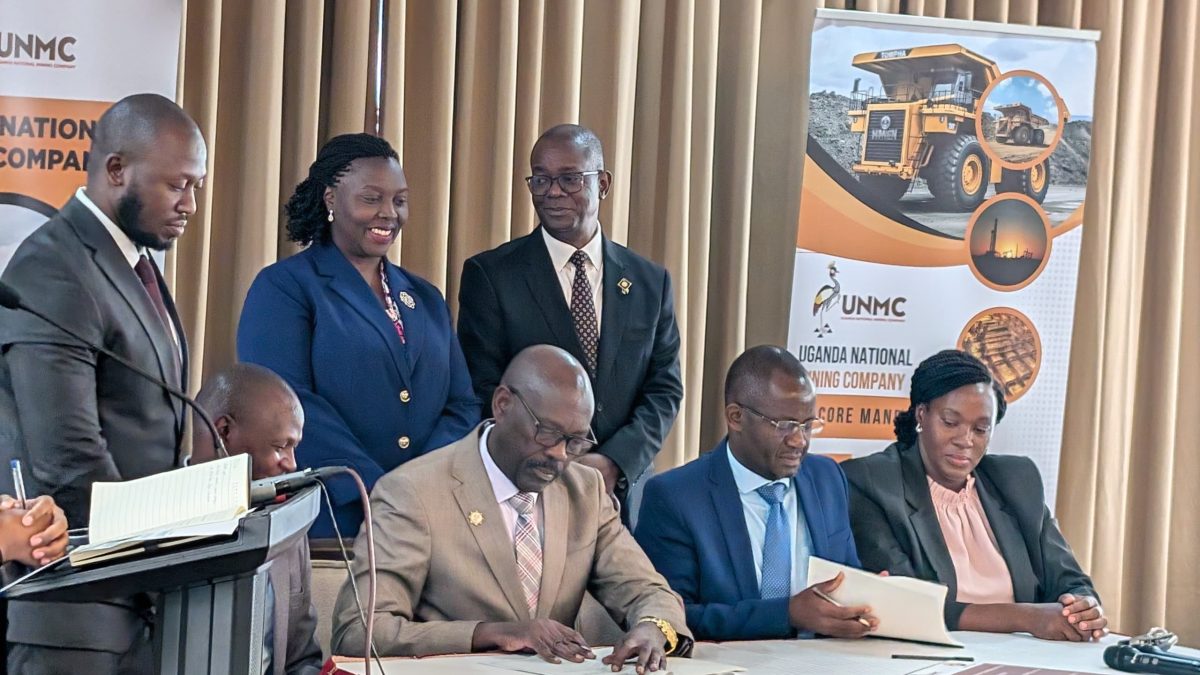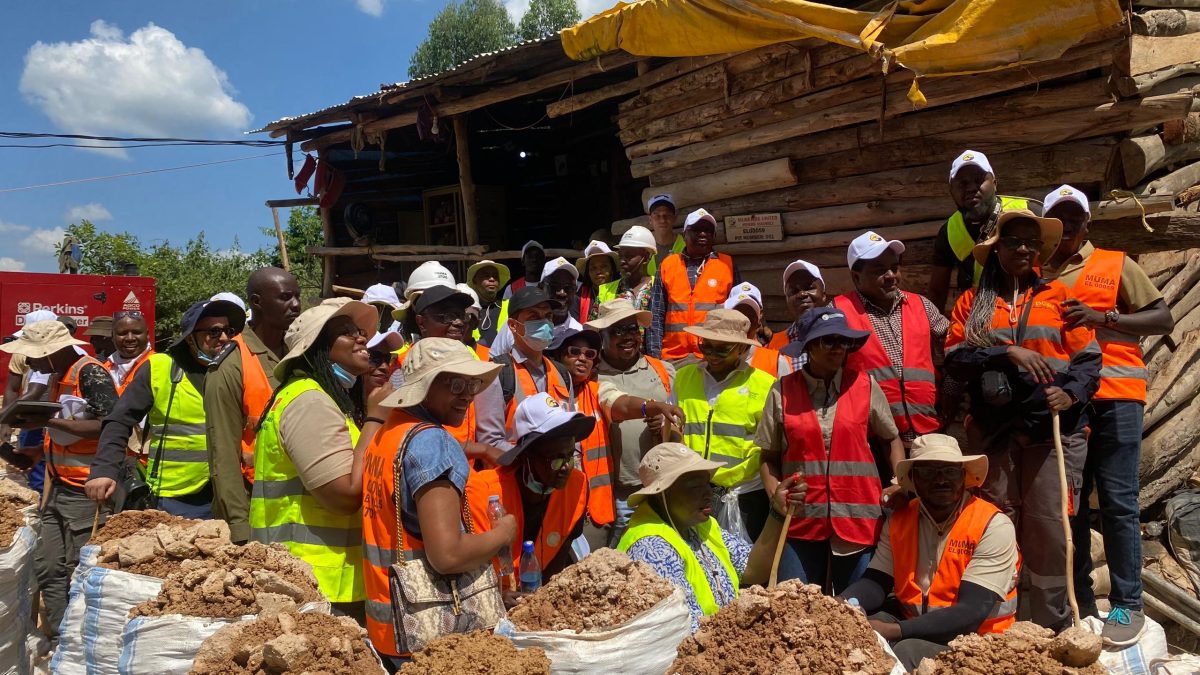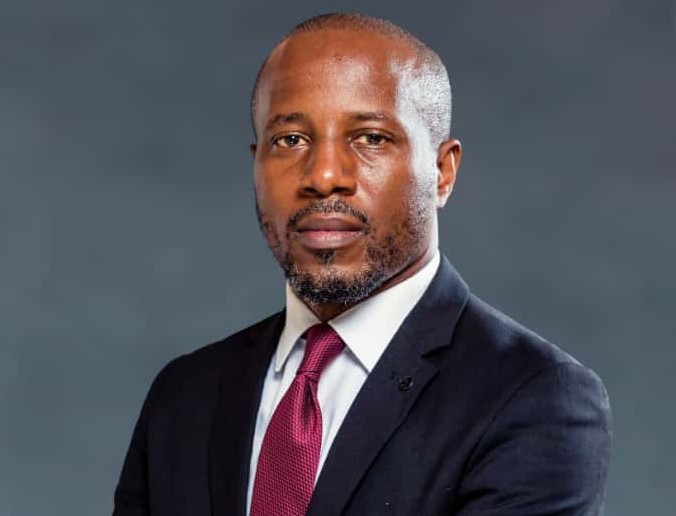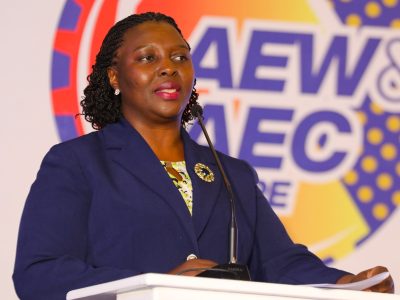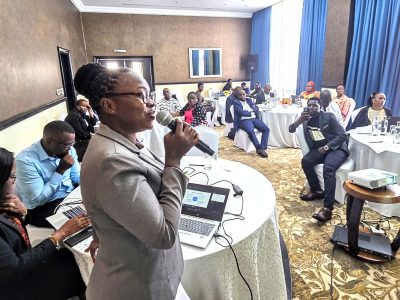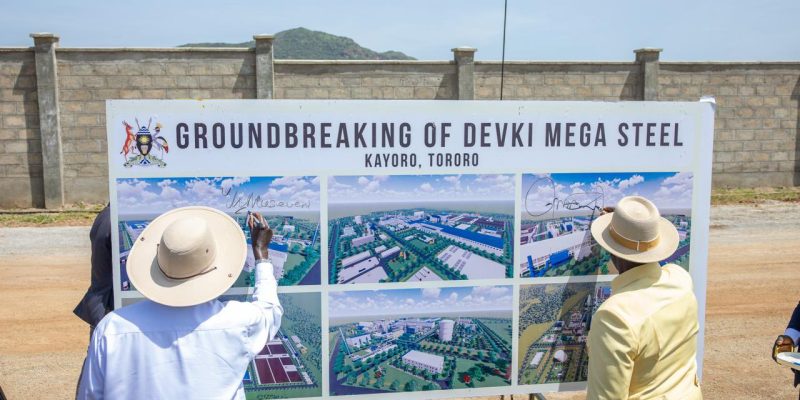
As presidents Yoweri Museveni of Uganda and William Ruto of Kenya presided over the groundbreaking of the Devki Group’s multi-million-dollar iron and steel plant in Tororo, Eastern Uganda, the company chairman, Dr. Narendra Raval Guru was quick to remind the former of his promise to protect local manufacturers by restricting imported steel products.
Raval claimed Uganda’s dependence on foreign steel amounted to “importing poverty”; with the country currently importing $500 million worth of steel per year. A lot of this steel comes from China.
“I am very happy to confirm that His Excellency (Museveni) assured me that once this plant starts production, he will not only impose duty but ban importation outright,” Raval said in his speech, arguing that import restrictions would drive industrialization and job creation.
Citing US President Donald Trump’s doubling of tariffs on steel imports, Raval said strong protectionist policies were the only way African countries could combat youth unemployment.
He claimed that Devki’s investments will directly transform communities: the Tororo steel plant alone is expected to employ 5,000 Ugandans, with 90% of jobs reserved for the local population, while an additional 1,600 workers will be recruited for the associated iron ore washing and crashing plant in Kigezi (which plant is valued at $150 million).
The cleaned and crashed ore will subsequently be transported to Tororo for refining.
Across the region, Devki’s workforce is expected to rise from 18,000 employees today to 41,000 by 2027, including nearly 17,000 workers in Uganda.
Raval said construction would kick off within two months once Devki’s request for 150 acres of land and a 15MW power connection was granted.
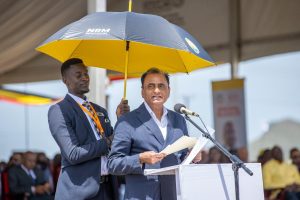
Dr Narendra Raval
His project has been touted as one of the largest industrial investments in Uganda’s history and a major step toward reducing East Africa’s dependence on imported steel.
Valued at over $500 million (about UGX 2 trillion), it will house what is expected to become the largest blast furnace steel plant in the region, capable of producing 600,000 tonnes of steel annually.
While Museveni did not publicly respond to the steel-imports-ban reminder from Raval, he did promise continued government support to the investor.
In 2023, Uganda issued a statutory instrument which passed the Mining and Minerals (Export of Raw and Semi-processed Iron Ore) Regulations, 2023, which only applied to “Devki Group of Companies (Devki Steels Mills Limited)”, despite the ban on export of mineral ores being in place for the rest of the miners.
The company that also runs a steel manufacturing plant in Kenya was subsequently issued an iron ore export permit – as we reported in our May 2023 Wrapper’s lead article titled, “Who Is Narendra Raval, The Only Man Allowed To Export Uganda’s Iron Ore.”

Raval appeared on the cover of the Deep Earth Wrapper in May 2023
With this history, industry observers believe the steel-imports ban will most likely be issued by Museveni once the Tororo plant is up and running.
In his remarks on Sunday, Museveni described the Tororo project as part of Africa’s broader struggle to escape centuries of underdevelopment.
He said Africa continued to “betray itself” by exporting raw minerals and importing expensive finished products – an economic model that cost Uganda alone half a billion dollars per year in steel imports, Kenya $850 million annually and the entire East Africa as a whole about $5 billion over the same period.
“This is not just launching a project; it is part of the liberation of Africa,” Museveni said, “If we do not add value, we export jobs and prosperity. I banned the export of unprocessed minerals more than a decade ago, and this plant fulfils that policy.”
He implored Africans to appreciate the “power of their pockets”, claiming that by spending on their locally manufactured products, the continent’s GDP would grow far beyond the current $2.8 trillion (that is dwarfed by the much less populated USA’s $30 trillion).
He pledged government support including extending a railway siding to the Tororo plant, noting that the facility will produce intermediate steel products such as billets, plates and flat sheets used to manufacture iron sheets, bars and other essentials.
Museveni also urged Devki to ensure jobs are fairly shared between Kigezi, where the iron ore originates, and Tororo, where the plant is located, to avoid regional resentment.
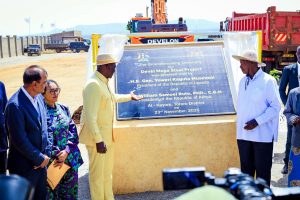
(L-R) Raval, his wife, Ruto and Museveni
President Ruto praised the project as a milestone in regional integration, arguing that collective industrial power far outweighed the efforts of individual nations. He said Kenya, Uganda and Rwanda were deliberately coordinating policies to encourage multinational investments like Devki’s.
Already employing more than 400 workers during early works, the Tororo plant is expected to anchor cross-border value chains benefiting transporters, SMEs, construction firms and energy suppliers across the East African Community.
Ruto noted that Africa’s steel consumption – 39.5 million tonnes in 2024 – is projected to reach 52 million tonnes by 2034, creating new market opportunities for locally produced steel.
“With 20 to 25 billion tonnes of proven iron ore resources, Africa has what it needs to meet domestic demand and become a global exporter,” Ruto said, “This facility tells the world that East Africa has the courage and capacity to build globally competitive industries.”
Ruth Nankabirwa, Uganda’s Minister of Energy and Mineral Development, highlighted the country’s growing iron ore reserves, now estimated at 318 million tonnes of hematite in the southwest (graded at 65% Fe) and 111 million tonnes of magnetite in the east with total inferred resources exceeding one billion tonnes.
These deposits position Uganda as a potential leader in regional steel production, she added.
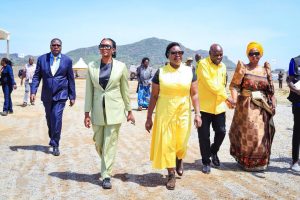
Nankabirwa (C) in the company of her junior ministers and other cabinet members
Devki has already been granted four exploration licences in Rubanda, Kabale and Kisoro districts, and had already begun exploration to quantify resources for the Tororo plant.
Devki’s plant is the third steel production plant in the country alongside Tembo’s facility in Iganga and Abyssinia’ in Jinja.
The Ministry committed to supporting the sector through improved electricity access, roads, mineral data dissemination, regulatory strengthening and a 15% equity stake in strategic mining projects through the Uganda National Mining Company.
Gabriel Data, the Assistant Commissioner, Geology at the Directorate of Geological Survey and Mines (DGSM), said the Tororo blast furnace would not only boost demand for iron ore but would create ripple effects for minerals such as tungsten, tantalum, molybdenum and nickel, which are commonly alloyed with iron and carbon to create different types of steel.
